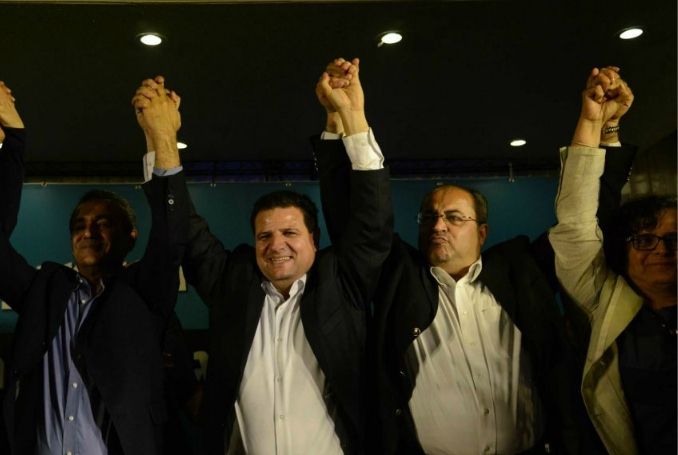
Knesset Members (MKs) from Israel’s predominantly-Arab parties have vowed to bring about a “historical revolution” in the country’s upcoming general election, stressing that the newly-reformed Joint List must work hard to win back the support of Palestinian citizens of Israel.
The four parties – Hadash, Ta’al, Ra’am and Balad – ran as two alliances in Israel’s April 9 election, winning a total of ten Knesset seats. This came as a disappointment for Palestinian citizens of Israel, given that the four parties previously held 13 seats as the Joint List, an alliance formed in the run-up to Israel’s 2015 election.
"The Joint List, largely comprising Palestinian citizens of Israel, is set to be resurrected following a meeting between the leaders of the constituent parties." https://t.co/CMTRA2f12H
— Ben White (@benabyad) June 21, 2019
The List broke down in February amid factional infighting over the distribution of party seats within the alliance.
Now, with fresh elections slated for 17 September – Israel’s second this year after Prime Minister Benjamin Netanyahu last month failed to build a ruling coalition – these parties yesterday announced that they have reformed the Joint List.
Israel's Arab parties to resurrect Joint List in bid to regain seats https://t.co/QwK2YfwUaV
— Haaretz.com (@haaretzcom) June 20, 2019
Two of the Joint List’s MKs, Yousef Jabareen and the alliance’s only Jewish candidate, Ofer Cassif, spoke to MEMO about how they plan to learn lessons from April ahead of Israel’s next election.
Jabareen told MEMO that the decision to reform the Joint List was a reaction to the “demand of the Arab street and the demand of the people”.
Jabareen explained:
“I hear this every time I meet our people, and therefore it is our duty to listen to this popular demand and respond to it”.
The Joint List is back. Likely to increase Palestinian-Israeli representation in the Knesset. https://t.co/K4EsQp3or0
— Brent E. Sasley (@besasley) June 21, 2019
Disillusionment among Palestinian citizens of Israel was cited as one of the key reasons for the low voter turnout on election day in April, with many choosing to stay at home or actively boycott the polls.
Many were disappointed with the disbanding of the Joint List, while last year’s passing of the Nation-State Law – which declared Israel the “national home of the Jewish people” and effectively rendered Israel’s some 1.8 million Palestinians second-class citizens – came as a severe blow to the community’s engagement with Israeli politics.
Latest on Israeli Elections: Lieberman suing people & hating on Chareidim, Lapid & Yaalon go at it https://t.co/8frYHyofS8 via @GreaterLakewood
— GreaterLakewood.com (@GreaterLakewood) June 20, 2019
For his part, Ofer Cassif told MEMO that the Joint List must also look outside itself if it is to affect change on 17 September.
Cassif explained:
“We are facing serious danger in the form of racist, right-wing parties, led by the prime minister, so the Joint List has to act as a bulwark against religious fundamentalism and, frankly, fascism in this country”.
Four Israeli Arab parties reunite for upcoming elections https://t.co/b0y4i9H5Jv via @timesofisrael
— Elke Götze (@Pucemargine) June 20, 2019
Ahead of April’s election, Netanyahu orchestrated a deal with some of Israel’s most extreme right-wing parties in a bid to secure his re-election.
In the months that have followed, he has appointed right-wing MKs and long-time loyalists to key portfolios, often in order to guarantee his own position in the face of pending indictments in three corruption cases.
(Middle East Monitor, PC, Social Media)







